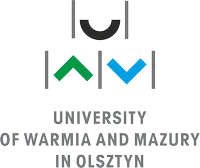Education
Education is the process of facilitating learning, or the acquisition of knowledge, skills, values, beliefs, and habits. Educational methods include storytelling, discussion, teaching, training, and directed research. Education frequently takes place under the guidance of educators, but learners may also educate themselves. Education can take place in formal or informal settings and any experience that has a formative effect on the way one thinks, feels, or acts may be considered educational. The methodology of teaching is called pedagogy.
Research
Research comprises "creative and systematic work undertaken to increase the stock of knowledge, including knowledge of humans, culture and society, and the use of this stock of knowledge to devise new applications." It is used to establish or confirm facts, reaffirm the results of previous work, solve new or existing problems, support theorems, or develop new theories. A research project may also be an expansion on past work in the field. Research projects can be used to develop further knowledge on a topic, or in the example of a school research project, they can be used to further a student's research prowess to prepare them for future jobs or reports. To test the validity of instruments, procedures, or experiments, research may replicate elements of prior projects or the project as a whole. The primary purposes of basic research (as opposed to applied research) are documentation, discovery, interpretation, or the research and development (R&D) of methods and systems for the advancement of human knowledge. Approaches to research depend on epistemologies, which vary considerably both within and between humanities and sciences. There are several forms of research: scientific, humanities, artistic, economic, social, business, marketing, practitioner research, life, technological, etc.
Education
What we need is to justify coercion, paternalistic control, blame, scolding, and punishment - all of which are less evident in trigonometry class than in a fourth grade learning long division.(...) I have argued that blame, scolding, and punishment in public schools - what I have called "the ordeal" - can be successfully defended. Students have a duty to learn, and can be held responsible for violating whatever rules, policies, or instructions are enforced to ensure that they do so.
Charles Howell - Syracuse University: Education, Punishment, and Responsibility
Education
Give me a dozen healthy infants, well-formed, and my own specified world to bring them up in and I'll guarantee to take any one at random and train him to become any type of specialist I might select – doctor, lawyer, artist, merchant-chief and, yes, even beggar-man and thief, regardless of his talents, penchants, tendencies, abilities, vocations, and race of his ancestors. I am going beyond my facts and I admit it, but so have the advocates of the contrary and they have been doing it for many thousands of years.
John B. Watson. Behaviorism (Revised edition). (1930). Chicago: University of Chicago Press. p.82.
Education
I hope we still have some bright twelve-year-olds who are interested in science. We must be careful not to discourage our twelve-year-olds by making them waste the best years of their lives on preparing for examinations.
Freeman Dyson, “Butterflies and Superstrings” in Timothy Ferris (ed.) The World Treasury of Physics, Astronomy, and Mathematics (p. 135)
